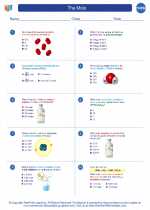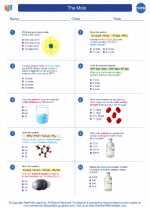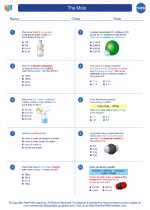High School Chemistry: Mechanical
Mechanical in the context of chemistry refers to the physical processes and properties of substances, as well as the mechanical energy involved in chemical reactions and changes. Understanding mechanical aspects in chemistry is crucial for comprehending various phenomena and processes.
Key Concepts
- Physical Properties: These are characteristics that can be observed or measured without changing the composition of a substance. Examples include density, hardness, and conductivity.
- Physical Changes: These are changes in a substance that do not alter its chemical composition. Examples include melting, boiling, and dissolving.
- Mechanical Energy: The energy associated with the motion and position of an object. In chemical reactions, mechanical energy can be converted into other forms of energy.
- States of Matter: The three primary states of matter are solid, liquid, and gas. Changes in temperature and pressure can lead to transitions between these states.
Study Guide
To master the concept of mechanical in chemistry, consider the following study guide:
- Review the physical properties of different substances and how they can be measured or observed.
- Understand the distinction between physical and chemical changes, and be able to identify examples of each.
- Explore the concept of mechanical energy and its role in chemical reactions. Consider how energy is transferred and transformed during these processes.
- Examine the behavior of different states of matter and the factors that can influence their transitions.
- Practice solving problems related to mechanical aspects in chemistry, such as calculating density or understanding phase diagrams.
Remember to engage in hands-on experiments and demonstrations to reinforce your understanding of mechanical concepts in chemistry.
By mastering the mechanical aspects of chemistry, you will develop a deeper appreciation for the physical nature of substances and the energy transformations that occur in chemical reactions.
[Mechanical] Related Worksheets and Study Guides:
.◂Chemistry Worksheets and Study Guides High School. The Mole
The resources above cover the following skills:
Chemistry II
Reactions
Use mathematical representations to analyze the proportion and quantity of particles in solution.
Equilibrium
Analyze and interpret data to explain the change in concentration of products and reactants, and the stable state achieved under reversible conditions.



